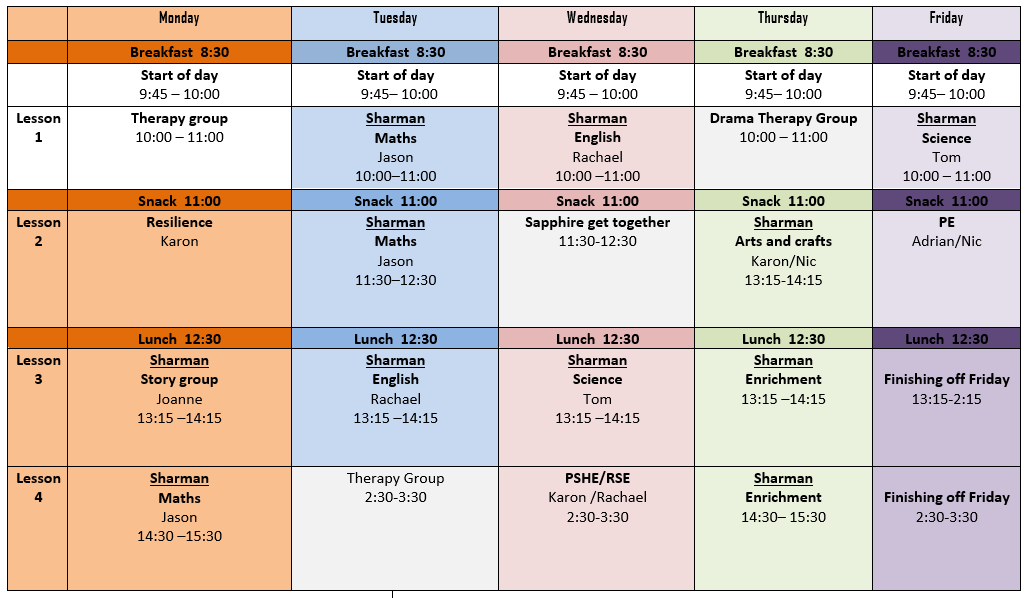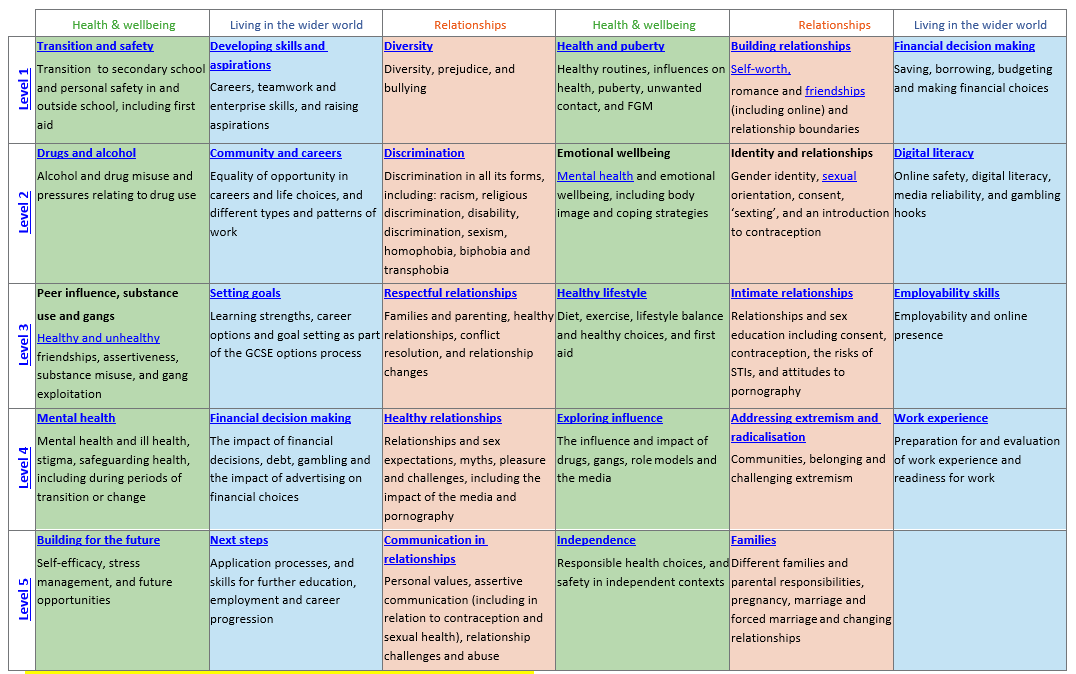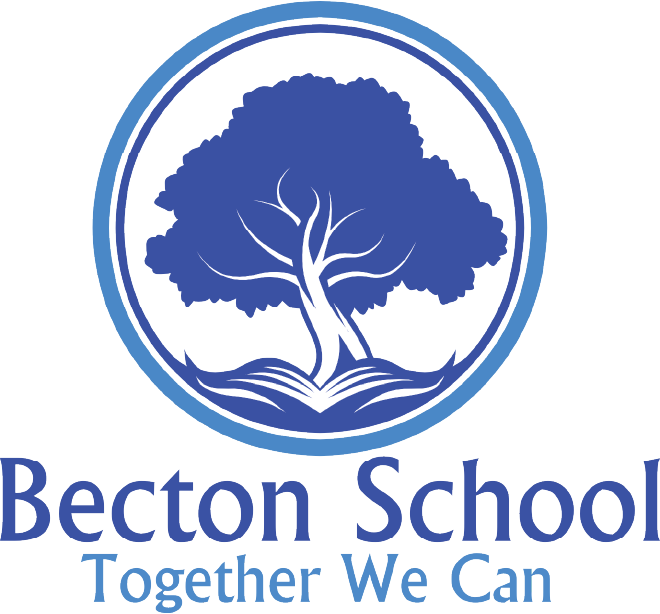Sapphire Lodge
Ethos
Becton School will provide relevant teaching in line with the National Curriculum for pupils appropriate to both their emotional and educational situation. The curriculum is delivered by highly experienced and qualified teachers who are supported by a team of Teaching Assistants, Higher Level Teaching Assistants and Learning Mentors; this enables us to offer a high level of support to the young people. Alongside the subject sessions there are therapeutic sessions such as Occupational Therapy, Art Therapy, Drama Therapy and other group therapies such as group talking therapies for example.
Upon admission, information will be sought from the young person’s mainstream placement regarding the prior attainment, attendance and targets. Education and Healthcare Plans and Individual Education Plans will be requested where in place. It is essential that all involved parties work in partnership in order to provide the best continuity of education and support for each pupil.
Each young person has a personalised individual learning programme designed in conjunction with them in order to address their academic needs whilst supporting their social and emotional wellbeing.
The school is a registered centre for GCSE examinations and young people have the opportunity to continue their GCSE's and A Levels during their admission. Becton also offers a number of alternative accredited courses. These include:
- Functional skills in English, Maths and ICT
- Virtual College On line Qualifications
- The Bronze Arts Award
- ASDAN
A-level taster courses are also available for young people who cannot continue with their current A level studies.
For more information regarding the curriculum content of the subject specific lessons please see below.
Please note that the content offered to students may differ from the main plan below if specific gaps in learning are identified or if the students host school has previously covered this material. In these cases, bespoke plans may then be put in place.
Sample Timetable

English
Focus of schemes
Largely, the long term planning below is driven by exam skills, especially to enable KS4 students to gain a Grade 4 or higher in English Language (can differentiate as needed). Work is based on AQA papers, though skills are largely transferrable across examination boards. Reading/writing skills are mixed over the course of a half term (as opposed to split via half term) due to the changing nature of the cohort, as well as the reduced number of hours compared to mainstream teaching. All topics can be adapted to include a Speaking and Listening element if required by the student for exams, but it’s explicitly focused on in Celebrations and Persuasive Writing.
Why this, why now?
Language is focused on as opposed to Literature, because students are usually struggling with a multitude of barriers such as ill health, reduced timetable, attendance and engagement, and missed schooling in their past. Trying to manage both the Literature and Language schemes of study is therefore likely to be overwhelming and unrealistic. However, all planning is flexible and differentiated to suit the needs of individuals; if a student were studying a Literature text at their home school, we have resources and expertise to plan for this. Extracts also include texts from a variety of genres and forms, to expose them to literary texts in a shorter form. Repetition and cyclical learning are helpful in this setting. The document below outlines schemes of work that last a half-term, but they are titled ‘Option A’ (etc) because the order is flexible and can be adapted to the needs of the current cohort.
| Autumn 1 |
|
|---|---|
| Autumn 2 |
|
| Spring 1 |
|
| Spring 2 |
|
| Summer 1 |
|
| Summer 2 |
|
Maths
Curriculum Aim
Our approach is to enhance pupils’ enjoyment of Maths and to allow them the opportunity to experience success in the subject. The pupils will follow a carefully sequenced curriculum based on the National Curriculum framework which is appropriate to the pupils’ starting point. Our teachers create a supportive environment where pupils are able to build on knowledge and skills already learnt.
Pupils will join our school at various points in the year, so we structure our curriculum and individual lessons to provide the possibility for progression - and to address any gaps they may have in their learning. Our teachers will encourage pupils to be resilient in their learning, by fostering positive relationships, alongside encouraging pupils to realise that making mistakes is part of the learning process. Pupils will be supported to communicate mathematically and to develop skills to solve familiar and unfamiliar problems.
Delivery of the Curriculum
Pupils will have two maths lessons a week and will be placed in a class based on their age and current working levels. During lessons, they will be working on a particular theme for a number of weeks. These are:
- Theme 1 - Structure of the number system
- Theme 2 - Operating on Number
- Theme 3 - Proportional Reasoning
- Theme 4 - Sequences and Graphs
- Theme 5 - Statistics and Probability
- Theme 6 – Geometry
Lessons will also involve retrieval of previous learning and teachers will address any gaps in knowledge pupils may have. Due to the nature of our pupils, our teachers may be required to offer bespoke lessons based on the learning needs of the group.
If you require more detailed information about what your child is studying in their maths lessons, please contact Katie Cammack, curriculum lead for maths, at kcammack@nexusmat.org
Science
Curriculum Aim
In Science, our aim is to enhance pupils' enjoyment of the Sciences. Our curriculum at KS4 involves the teaching of Chemistry, Biology and Physics at the appropriate level from pre-GCSE ‘Entry Level’, working all the way up to ‘GCSE level’ and it is taught in an engaging and interactive way, making the learning fun and ensuring that pupils experience success. We structure the lessons so that they are representative of learning in the pupil's home school and support pupils to gain both the theory and practical skills that they need to succeed in the subject.
Our pupils join us at different points of the year and with different gaps in knowledge. Because of this, we teach core scientific principles essential for future scientific success. Over time, we can then understand a pupil's strengths and gaps in knowledge, and educate them based on their individual needs. Teaching around these core scientific principles allows us to stretch pupils' understanding and increase their cumulative science knowledge. We also engage pupils with practical activities, and it is usually possible for students to pick a science topic to study if they are interested in it.
When appropriate, we are also able to work with a pupil's home school to mirror the topics they are covering, and prepare students for a smooth transition back to their home school.
Exemplar of Key Principles Taught:
| Term | Content | Practical Activities |
|---|---|---|
|
Term 1 |
Cell Structure (Biology) Atoms and the periodic table (Chemistry) Forces (Physics) |
Using a microscope Simple chemical reactions Newton meters and force measuring |
|
Term 2 |
Bonding of elements (Chemistry) Energy stores and transfers (Physics) Organisation of an organism (Biology) |
More simple chemical reactions Finding energy transfers all around us |
Social, Moral and Spiritual Education
The school functions within a community that provides a framework for adolescents to explore social, moral and cultural issues. For most of the pupils who attend Becton, life experiences may have rendered them increasingly isolated both at home and at school. It is within this context that the pupils at Becton are given the structure to look at issues pertaining to themselves, their family and friends, and the wider community.
P16 Offer
We understand that being in hospital at this age is very difficult. At the school we want to support you throughout your stay and are an important part of the therapeutic offer of Becton
The pathway through Post-16 at Becton is a personalised one and you choose your ‘journey’
If you are currently enrolled at College or 6th Form we can help you to continue with your studies. We will liaise with your placement and help you with your course.
If you are not enrolled in a further education placement or wish to look at different courses then we can help you with this.
Listed in this booklet are popular courses that we can assist you to follow. Pick up to 3 to create your pathway. If there is nothing which interest you on this list we have access to lots of courses through the Open University which you can choose.
RSE and PHSE
All Becton students are taught using a spiral curriculum approach, which is a curriculum that returns to the same topics over time. All lessons are aligned to the National Curriculum.
The spiral approach to curriculum has three key principles. The three principles are:
- Cyclical: Students should return to the same topic several times throughout their school career;
- Increasing Depth: Each time a student returns to the topic it should be learned at a deeper level and explore more complexity;
- Prior Knowledge: A student’s prior knowledge should be utilised when a topic is returned to so that they build from their foundations rather than starting anew.
The curriculum approach uses 5 levels of skills across 3 different areas:
- Health and Wellbeing
- Living in the Wider World
- Relationships
Staff will benchmark students on entry and will choose a level and subject according to the specific, bespoke needs of the students at that time. The choices will be made with liaison with the wider multidisciplinary team.

CEIAG, Progression and Gatsby Benchmark
All pupils approaching a transition in their education (latter part of Y10, Y11 or Y13, for the majority of pupils) are offered a 1 to 1 session with a careers adviser. This takes place, face to face, or, where necessary, can be supported remotely at the Becton site. Where feasible, and appropriate, pupils are supported to maintain contact and input from their mainstream educational placement. This can include careers and progression advice and guidance.
Pupils who are at the stage where it is necessary to make plans to secure appropriate educational progression (e.g. a college application) are supported, to do so by the most appropriate staff members from the entirety of the MDT.
Pupils who are discharged into a new educational placement are supported by a plan made by the education team. Where appropriate, this plan will be supported by the site MDT, family, relevant community teams and family.
In addition to fulfilling key elements of the guidance on careers education, the Enterprise and Careers related curriculum can contribute significantly to our key aims of building resilience, aspiration and confidence within our pupils. Where individual circumstance, such as health and risk, allow KS4 and 5 pupils have access to a range of experiences that support these aims. The experiences map to the features of an appropriate careers curriculum and some of the Gatsby Benchmarks.
The CEIAG offer includes encounters with further and higher education, encounters with employers, experience of workplaces, building familiarity with the online National Careers resource and participation in enterprise activities.
Subject to NHS infection control measures, relating to COVID 19, and the health of individual pupils, a pupil experiencing an average stay of 17 weeks would have the opportunity to access 2 experiences. Access to individual advice and guidance, through a careers adviser, can be facilitated, in addition, as required.
CEIAG - Careers Education Information advice and Guidance
The Becton School curriculum has a rolling programme that contains elements of the Gatsby Benchmark. This involves session around ‘Enterprise’, progression routes, personal development, career research and presentation skills. In addition all pupils who are at a stage in their education where they may make a transition from school to college or sixth form have an individual session with the school’s personal adviser. This is used to assess the need for further specific individual information, advice and guidance.
If you have any enquiries regarding your child’s access to CEIAG, or require individual additional advice regarding progression routes, please contact Tracey Curtis (Becton School) for further information.
